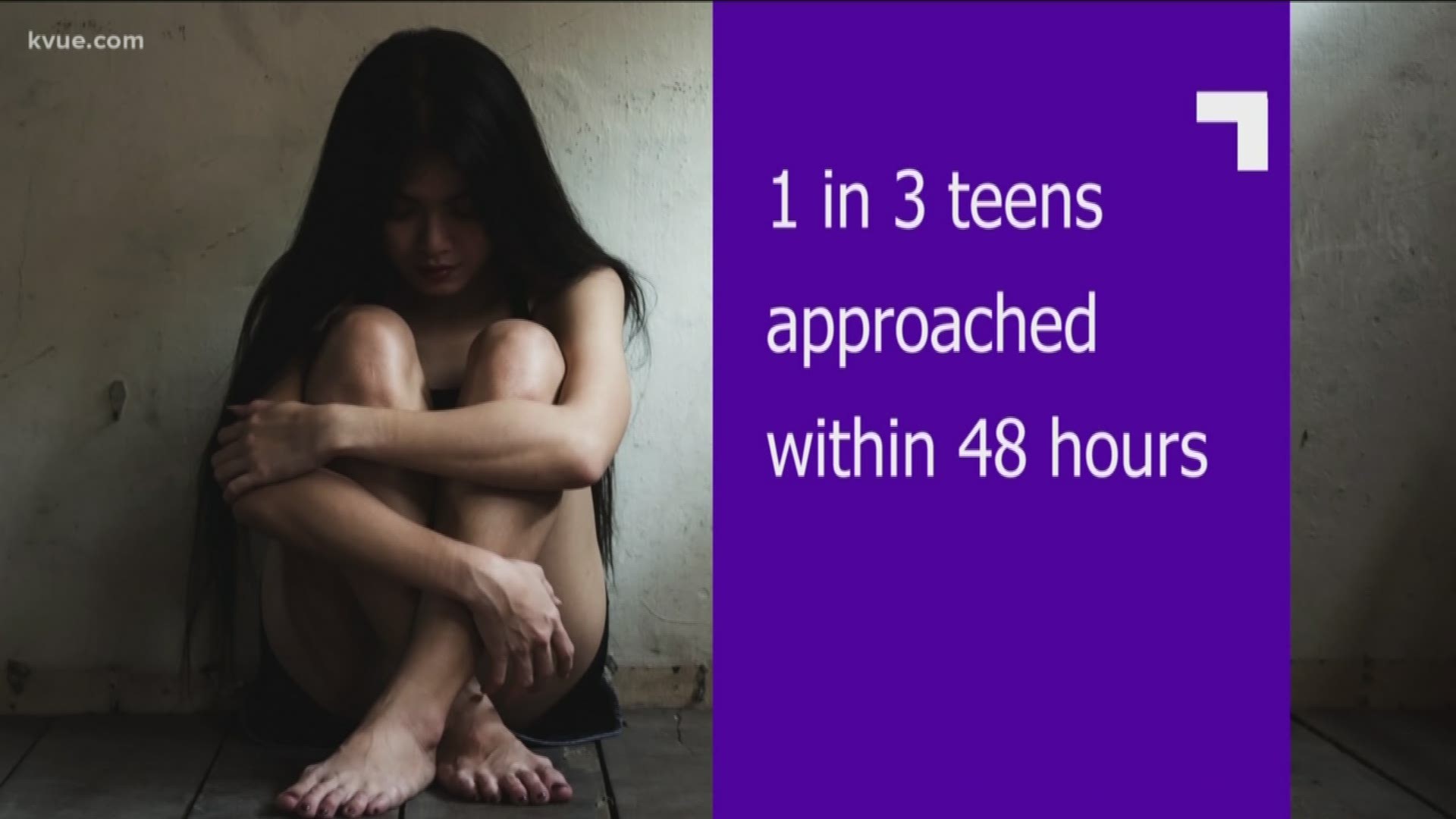AUSTIN, Texas — It seems harmless.
A frustrated kid turns to social media to vent to their friends about their parents, but someone else steps in to comfort them. Someone who has much more sinister motives and who encourages them to leave home.
That's all it takes for a child to fall victim to sex trafficking.
Allison Franklin is a sex trafficking survivor.
"I started running away at age 11 or 12,” Franklin said.
After suffering years of child abuse, a man pretended to care about her, posed as someone who wanted to be her boyfriend and lured her away from home.
"When I ran, it was empowering to me because all my choices had been taken by my abuser,” Franklin said.
Within hours, he and other predators turned her into a modern-day slave.
"I never asked to be beaten and broken into slavery,” Franklin said.
Local law enforcement said these cases are extremely difficult.
A sergeant with the Austin Police Department said they get calls all the time about kids who have run away. While not all of them are victims of trafficking, he said every sex trafficking victim they've ever recovered was a runaway.
“Obviously, with this day and age, with social media and the internet, that’s where many exploiters and traffickers are able to identify vulnerable youth. They are so skilled on being able to pick up on who’s vulnerable,” Kari Hamilton said.
Hamilton works with the SAFE Cares program, which solely aims to help victims of sex trafficking.
“Anecdotally, we’ve heard through survivors that they needed something specifically designed for them,” Hamilton said.
The Justice Department estimates that a pimp will approach one-third of teenagers on the street within 48 hours.
“It’s scary when youth are on the streets at night,” Hamilton said.
And she said the problem may not be what you “think” trafficking looks like.
“It happens peer-to-peer. Very often it’s the same age, and from the outside, it looks okay,” Hamilton said.
“I think about individuals looking for love in all the wrong places. So, I know that I’ve mentored young women that come from a very affluent family, had everything they ever wanted, but their parents are just so busy,” Franklin said. “You have a kid that’s fighting with their parents and they post online, 'I hate my mom,' you know, and all those things. What they don’t realize is there’s another predator on the other side of that. 'Really, what’s wrong? Talk to me.'”
Police said it's important for parents to get involved by monitoring kids' phone, social media and online gaming.
According to Hamilton, they've served 180 survivors in the program's first year.
"In both of these rooms, we're hoping to have pull-out couches in those situations where individuals might be coming in the middle of the night,” Hamilton said, as she showed KVUE around their new drop-in center.
They're now planning to open the new location next month, with expanded hours to hopefully help more victims.
"They've had so much control taken away from them, so we're trying to give them pieces back, where they can have some ownership over what does the recovery look like,” Hamilton said.
Franklin now mentors other survivors and kids who are at risk.
"It's so incredibly easy for a predator to just walk in, say, 'Yes, I love you, I will take care of you, you're safe,' and exploit you for those vulnerabilities,” Franklin said.

